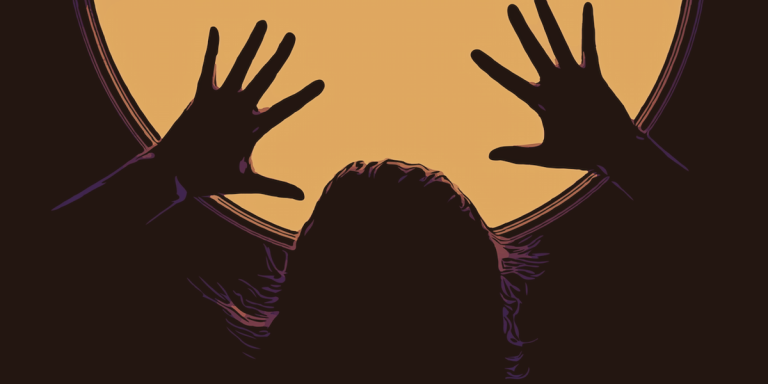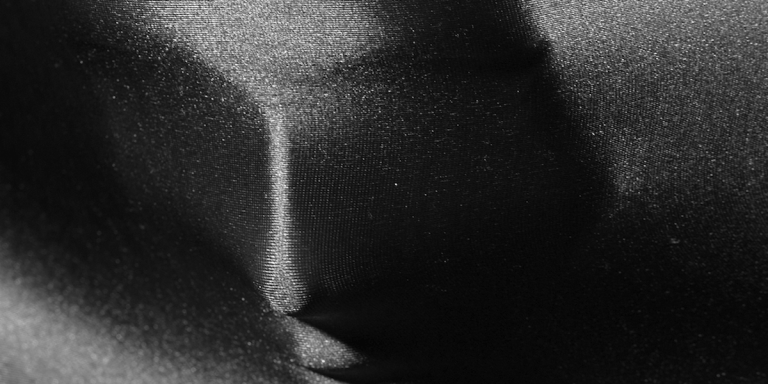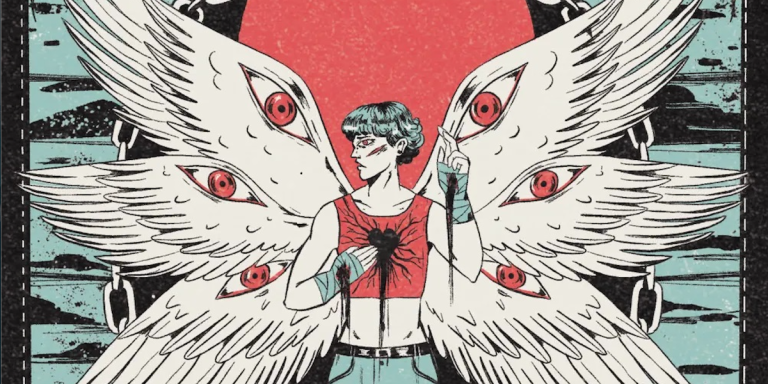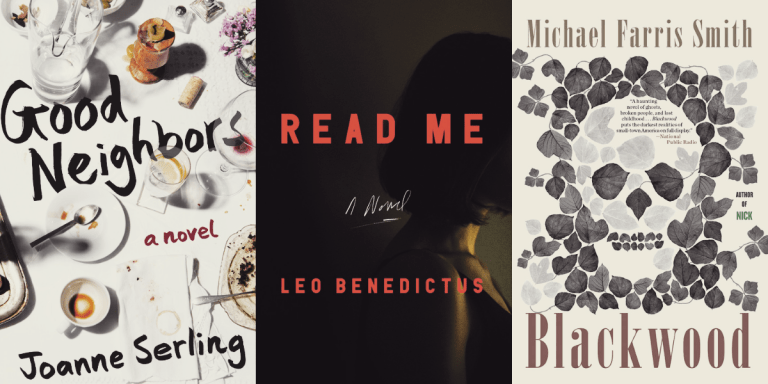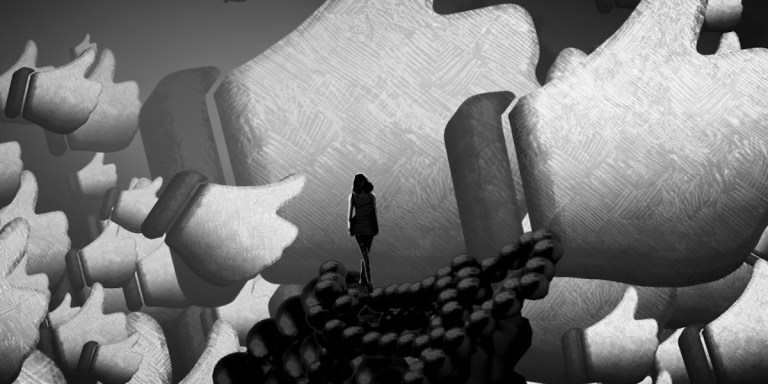Read the Excerpt: You Never Said Goodbye by Luca Veste
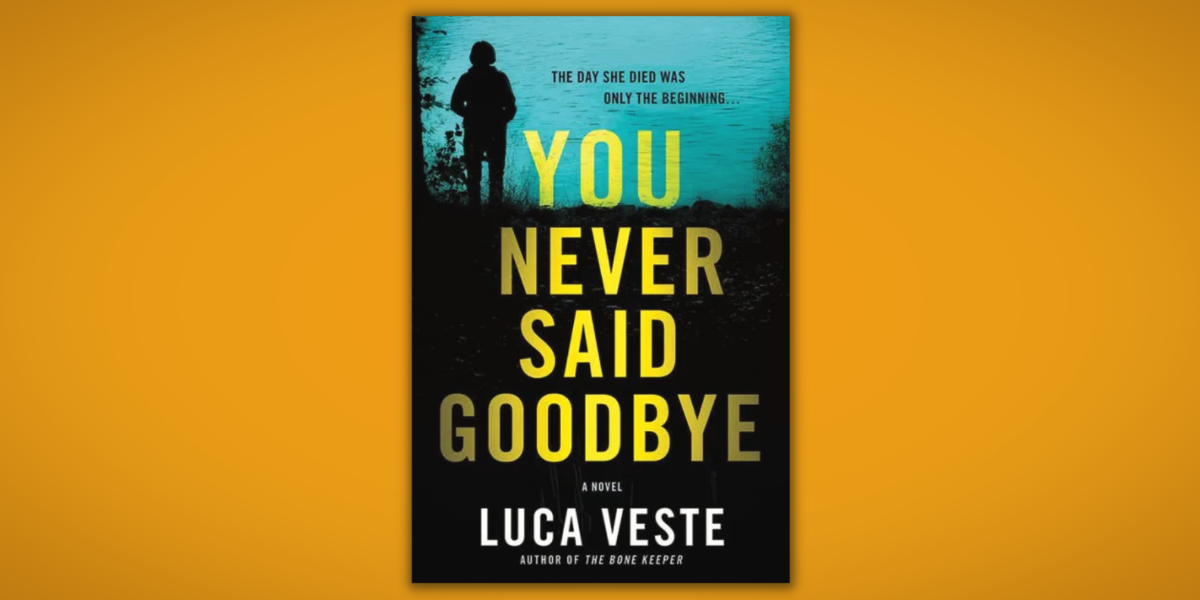 You don’t always get to choose your final words.
You don’t always get to choose your final words.
Sometimes, you don’t know it’s the end. When it’s all over and there’s no chance for a last goodbye.
They hit the water and the force knocked Laurie forward and into the dashboard. Her head spun as water began pooling around her feet instantly. She looked over to the driver’s side and saw David was out cold. Blood dripping down his face.
She tried to open the door, but it wouldn’t move. The window was open, the river rushing in. Her vision blurred. She turned around slowly but couldn’t see a thing. Only darkness. Shadows. Ghosts.
She couldn’t see her children. Her two boys, sitting in the back. She wanted to see them. One last time.
Her last thoughts as unconsciousness took her were of her family. At least they were all together.
She couldn’t even say sorry.
And as the water filled her lungs and she couldn’t breathe any longer, she thought of nothing but the fact she had failed them all.
Anthony was up there somewhere, she knew. Watching them die. He had won.
She had always been his.
TWENTY-FIVE YEARS LATER
He was a long way from what had once been home.
Wallace, Idaho.
The center of the universe.
Parker Rogers had been there, back in 2004, when the manhole cover over at the intersection between 6th Street and Bank had been unveiled. The mayor had decided that, because it couldn’t be disproven, he could declare the town of Wallace the center of the universe and that was that.
Probabilism. Greek philosophy. A thought experiment that Parker had tried to explain in the local bar a few times, to ever-decreasing interest from the other drinkers.
He was eating yet another TV dinner, sitting at the kitchen table with Elvis playing on the stereo. “An American Trilogy,” the live version. Where you could hear all the emotion pouring from him. It was a recording of the 1973 Honolulu concert—Aloha from Hawaii indeed. He could close his eyes and see the man himself performing. Sweat dripping from his face, like tears cascading down his cheeks. The leis around his white, rhinestone-dappled suit.
He preferred the later years—the Vegas period, when the jumpsuits began to look a little tighter and the King’s face was red and mottled. In the eighties, Parker could probably have passed for fifties-era Elvis. Now, forty years later, he was almost sixty and closing in on the three hundred and fifty pounds that the King apparently weighed at his death.
There was always talk that he had faked it—Parker had even seen a video recently of some pastor out in Arkansas singing in a bar. Older guy, white hair and white beard. The voice had been similar enough for him to pause. Wonder for a few brief moments if all those conspiracy theories had been right.
Wallace was a small town. An old mining community. Good, stubborn people. Friendly, even accepting of a fool like him. It had taken a couple of decades, but they had finally stopped calling him the new boy in town a few years back.
Back in the seventies, they tried to build the I-90 through the town, but the villagers fought back. Had the downtown area listed on the National Register of Historic Places. It meant that every building was now on that list, so they can’t be touched. The freeway ended up skirting around the town.
That’s the type of people they were in Wallace, Idaho. Tough. Uncompromising.
Loyal.
Parker sat down on the couch but didn’t turn on the TV. Instead, he stared at a picture of himself on a local news website. A mug shot, to be precise.
Thought about how much time he had left.
Tom wouldn’t get there in time.
Twenty-five years he’d managed to stay under the radar. Made something of a life for himself. Yeah, he’d never had kids, or a woman who stayed longer than the run of a failed sitcom, but that didn’t matter much to Parker. He had a good job working at an auto repair shop in town, a roof over his head, and all the TV dinners he could eat.
Oh, and a regular seat at Alby’s bar, which had landed his mug shot in the local news.
Tom would be too late to help him.
It didn’t matter. At least Laurie wasn’t around to see him now. He just wished he had been there for her when it mattered most. Then this whole mess might not have happened.
He hadn’t seen her in twenty-five years. And wouldn’t see her again.
He remembered how scared Laurie had been when she’d come back in ’95. She’d tried to hide it, but Parker had known she was thinking about him.
The bogeyman.
And he had eventually caught her.
Elvis’s backing singers were harmonizing away as lights flashed across the front of the house. A car pulled up onto the driveway and shut off its engine.
Parker reached slowly to his waistband and made his way over to the door.
He could see a shadow fall across the stoop.
They had come for him.
If it had been ten, twenty years earlier, he might have had a better chance. It didn’t mean he wasn’t going to do everything he could to save his own life.
As the King built to a crescendo, his voice filling the kitchen-diner and escaping into the hallway, Parker Rogers took out his gun, flicked off the safety, and leveled it at the front door. He placed his back to the wall and kept his focus straight ahead. Two hands on his gun, waiting for a clear shot.
There was a soft knock at the door. Parker didn’t move.
“Parker?”
He didn’t recognize the voice, but he knew who had sent them.
He stepped to the side and crouched down. The shadow moved and another knock on the door came.
“Open up, Parker, we need to talk.”
Parker was a breath away from squeezing the trigger when he felt something hard and metallic at the back of his head.
“Don’t move,” a man said from behind him. “Drop it, or they’ll be scraping your brains out of the wood paneling for the next thirty years.”
The music grew louder. Filling Parker’s ears until they felt they would burst. Fear crawled up inside him and consumed his body.
He knew in that moment that he would do anything not to die that night.
Joe Carson felt the bone snap beneath his grip and smiled.
Hunter was standing close by, keeping his gaze on the way Carson was manipulating the wrist under his grip. He was younger than Carson—thirty years at least. Still, he seemed eager to learn. They hadn’t worked together all that long, but the way his young eyes darted over the skin and bones of the poor guy in the chair told Carson he might stick around a while.
Carson moved to the other side of the chair, giving the older man a brief moment of respite. He shook with pain, tears turning red as they rolled down his cheeks. Blood seeped slowly from his nose, his body jerking with shock waves. Carson took hold of his right wrist, feeling his way to his target.
Hunter shook his head slowly as fire danced in his eyes, watching Carson move carefully along the man’s hand and arm. Stared in fascination, delicate thunder emanating from his body. Carson wondered if the younger man would be able to learn this graceful sort of technique. He didn’t look the type—all muscle-bound, with biceps bigger than some people’s waistlines. Hands built for power rather than precision. He was an overbearing presence in the room. Even at full height, Carson was still a fair few inches below Hunter. Less stocky too. It mattered little to him. He never compared himself to other men. It was a waste of his time.
“Nice place to settle down, Parker.”
He flicked his own wrist and another bone snapped. The gag across Parker’s mouth muffled the scream that followed.
“Now, Parker,” said Carson politely, letting go of his arm and squatting down in front of the older man. His eyes screamed in agony; reddened, filmy. “We’ve been here before. Over twenty years ago, would you believe it? Time goes by so quick. You gained a hundred pounds, and I lost half my hair. Ain’t life a bitch. Last time we spoke, I let you live. This time, unless you tell me what I need to know, that ain’t going to happen.”
Parker stared back at him, pleading soundlessly. He neither nodded nor shook his head.
Hunter was standing directly behind the chair now. He loomed over them, blocking out the soft shards of light escaping into the room from the hallway beyond him.
“Parker, I’m going to remove the gag now,” Carson said, standing up slowly. “You’re going to tell me what I need to know and then this will be over. Do you understand?”
Parker’s arms and legs were tied to the chair. He couldn’t move far even if he wanted to. He could move his head but seemed to have frozen; whether out of fear or something else, Carson wasn’t sure.
Carson reached down and tore away the tape covering Parker’s mouth. “Where is she?”
Parker gasped for air for a few seconds before looking up at his captor. “Like I said twenty-five years ago, I don’t know where she is.”
Carson thought he saw the ghost of a smile play across his lips. He looked past Parker at Hunter and shrugged.
Sometimes you can’t make them do the right thing.
He pulled out his gun—a black Staccato 2011, single action, low recoil—and gripped it firmly. Leveled it between Parker Rogers’s eyes and waited.
“Last chance,” Carson said. “Tell us, or your brains will be splattered across your nice tiled floor.”
“She’s dead.”
“We both know that’s not true.”
“Of course it is,” Parker replied, red spittle flying from his mouth. His gums were bleeding, mouth filled with blood. “Your boss needs to accept it and give up.”
Carson shook his head. “You’re going to die for nothing. We know she’s alive.”
“She’s not,” Parker said, his pleas falling on deaf ears. “It’s over. There’s no one left. You have to believe me.”
Carson didn’t believe him. That was the problem. He placed his gun against Parker’s forehead and pushed a little. Let him see how close he was to squeezing that trigger. “Five…four…three…two…”
“Wait, please,” Parker said, his voice strained. It seemed to take every last ounce of effort not to betray her. “You should see David.”
Carson cocked his head. “Who?”
“David Cooper.”
“What about him?”
“I know where he is. Maybe you can see for yourself that she’s not alive. Because if she was, she’d be with him, wouldn’t she? If you’re going to kill me, then it’ll be for nothing. Because that’s it. That’s all there is. Just listen to me…”
Parker continued talking, but Carson waved away his gabbling. “Where?”
“He’s back in England,” Parker said, his voice suddenly quiet. Almost a whisper. “A village called Firwood.”
“And that’s all you know? Really? That David Cooper lives alone in a village called Firwood?”
Parker agreed and dropped his head. Carson thought it over and decided he was telling the truth. It was all they were going to get.
“See. That wasn’t all that hard, was it?” Carson said. He smiled, then squeezed the trigger.
Parker Rogers jerked back violently, but he was dead before the chair righted itself.
CHAPTER 1
Sometimes, you just know. Sitting in that bar in the center of London, I could feel that certainty. This was the beginning of something.
Outside, the usual bustle of activity lived on, but inside, it was calmer, filled with the clink of glasses and hushed conversation.
I looked across the table as Rachel placed an elaborate glass of gin and tonic in front of her.
It was our third date. I already knew it was going somewhere—and this time I wanted it to.
“How’s work then?” she asked, catching my eye and not letting go.
Rachel. Thirty-three years old—only a year younger than me. No children and lived alone. Dark brown hair and worked in the city.
That was all I’d known about her before we’d met for the first time a few weeks earlier. Now, I knew she worked in finance—whatever that might mean—and was an Arsenal supporter. The game was playing silently on a television above the bar, but she didn’t glance at it more than a couple of times.
“Work is work, you know,” I replied, my hand resting against my glass of IPA. “It’s really not as intriguing as I made it sound. Yeah, it’s a charity thing, but I’m at the head office, reporting statistics, press releases, that sort of thing. That’s my day, basically. Glorified admin.”
“Still sounds more interesting than finance to me, Sam,” Rachel said, giving me a smile that seemed to flash with electricity. “Worthy, at least.”
Rachel glanced up at the screen for a second or two before turning back to her drink. I felt the back of my neck, the heat from where the barber had razored it clean earlier that day warming my hand. I could smell the aftershave I’d squirted onto my wrist before leaving work an hour or so earlier.
“Let me ask you this—Arsenal. Why?”
She laughed and the sound of it cut through the air between us like it was silk. “Well, they used to be good, you know? And you don’t even follow football.”
I held my hands up in defeat. “You’ve got me there. I just don’t get it. It’s, like, never finished. There’s no end to football, right? It just goes on and on, every year.”
She laughed again and I swigged down some of my drink.
I’d been on a fair few dates where silence seemed to be the only thing we had in common. This was easier.
This was something.
Sometimes you just know.
Or hope you do, anyway.
My phone buzzed quietly against my leg, but I ignored it. Whatever it was could wait. Instead, we continued talking—no awkward silences or breaks in the conversation. It was easy. Swapping stories, well-worn tales of our childhoods.
We made each other laugh.
I was in the middle of another story when my phone buzzed again. I stopped mid-sentence, but then continued. “So, I’m reading the instructions on the packet.”
“You’re how old?”
“About eleven or twelve,” I said, taking a sip of my drink. “I’m reading the instructions, right, and it says boil milk.”
“You wanted to eat just custard?”
“Yeah,” I said, like it was obvious. “I wanted custard and the packet was right there in the cupboard. I read the instructions, and they said to boil milk and add the contents of the packet. So, I thought logically about it.”
“Logically?” Rachel asked, raising her eyebrows.
“Yes. And where do you boil things? In a kettle. So, I measured out the milk, poured it into the kettle, and switched it on. Waited for it to boil and then poured it into a bowl and added the packet contents.”
“Oh my God…”
“I looked inside the kettle and realized I’d made a mistake.”
“Logic has left the building at this point.”
“It didn’t even taste that nice,” I said, smiling as Rachel burst out laughing. “I was disappointed beyond belief. Anyway, I learned my lesson about reading instructions after that, I swear.”
“Well, I hope you cook better now.”
I caught her eye and we both knew.
“What did your mum say? I bet she went mad.”
I shook my head, a feeling of guilt coming and going in an instant. “No, no, it was just me and my dad by then.”
She flung a hand to her mouth. “Oh God, I’m sorry. I didn’t remember how old you were.”
I waved away the apology. “It’s fine, honestly.”
“Your dad then?”
I remembered my dad’s face. The blank look he’d given me that said everything that was needed. “He wasn’t too happy, but it was easier to just buy a new one rather than talk to me.”
“You didn’t get on?”
I shook my head. Thought about explaining the situation and then decided against it. “Something like that.”
We continued exchanging stories about our childhoods. She came from a large family who all seemed to have individual quirks. She finished another story and then asked, “What about other family? Aunts, uncles, cousins?”
I shook my head. “No, no other family. It was just me and my dad after Mum died. And where I grew up, Firwood—let’s just say I didn’t fit in. I have a good group of friends now. They’re as good as family.”
“And even better, you get to choose this one, rather than be lumbered with them by accident of birth.”
I chuckled softly. “You’re right.”
Other dates had zeroed in about that, wanting to know how it was possible to not have any kind of family at all, but Rachel seemed to just accept it. Not push back and want to know details. It was better. Maybe, at some point, we’d talk about it, but there was no pressure.
I felt my phone vibrate again in my pocket. I continued to ignore the interruption as I listened to Rachel talk.
An hour passed in the blink of an eye. The sky outside changed from an almost indigo-tinged blue to black. The bar filled around us, but I barely noticed until Rachel excused herself to use the bathroom. As I waited for her, I pulled out my phone.
Five missed calls and a voice mail. I checked the number and felt my heart slow. A hollow feeling in the pit of my stomach suddenly appeared like a chasm of darkness. I recognized the area code instantly.
It was from home.
Two hundred miles away. It should have been far enough.
I gritted my teeth at the idea of thinking of somewhere as “home” even though it was two hundred miles away, almost two decades into my past, and I spoke to no one connected to the place. It had been over sixteen years since I’d left the village where I’d grown up—or been dragged up, as I’d like to imagine. Sixteen years since I’d left and never returned.
The walls seemed to close in around me as I felt beads of sweat form on my forehead.
I locked my phone again and shoved it into my pocket as if it were about to burn its imprint into the palm of my hand. Tried to ignore the feeling inside me as my stomach churned.
When Rachel returned, I gave her a tight smile and said, “I’ll be back in a minute.”
In an empty corridor by the toilets, I pulled my phone out and tried to catch my breath as my finger hovered over the redial button.
Suddenly it vibrated, and I almost dropped it to the floor in surprise. I swiped a shaking finger across the screen.
“Hello?” I said, expecting to hear his voice for the first time in almost twenty years.
“Hello? Is that Sam Cooper?”
It was a woman’s voice. Someone official, I guessed. I wondered if I should simply lie and end the call. Only, I recognized the tone of someone with bad news. “Yes, it is.”
“This is Isabelle Levy, I’m calling from Firwood Community Hospital.”
“Okay. How can I help you?”
“Your father, David Cooper…”
As Isabelle spoke, I thought about how long I’d been waiting for this phone call. As if I’d known at some point it would come. Isabelle continued to talk as my thoughts and memories ran into each other.
“You should come as soon as you’re able to,” I heard Isabelle say, and I realized I was holding the phone too tightly in my hand. I breathed deeply and massaged my temple with my free hand.
“Is he…”
A cough and shuffle from the other end of the phone. I didn’t hear her answer. Instead, I screwed my eyes shut and imagined going back. Traveling those two hundred miles and returning to that place. Seeing those buildings, those people again.
There was only a black hole, dragging me into somewhere I didn’t want to go.
CHAPTER 2
I walked to the nearest tube station with Rachel, apologizing the whole time. She was understanding, which only made it more difficult to leave her.
“Look,” I said as we reached the station and I pulled her aside from the people almost running inside. “I didn’t want tonight to end this way.”
“It’s not your fault,” she said, tucking a strand of hair behind her ear. “Are you sure you want to go alone?”
I nodded. “I’ll be fine. I’ll call you, okay?”
She took a second and then smiled at me. Made as if to leave, then hesitated. By the time she had turned around, I was already kissing her.
Moment saved.
“You best had,” she said into my ear once it was over. Then she was gone. A blur among the crowd of people pushing their way through barriers.
I was on the train in minutes, and not long afterward I was making my way out of Coulsdon Town station, walking the short journey back to my flat to pick up my car.
A two-and-a-half-hour journey down the M3 and A303. Past Basingstoke, past Salisbury. Across the bottom of the country and through the countryside. Straight into old England and the villages people in London always talk about wanting to retire to. The concept never quite becoming reality for so many. A few days without a restaurant that opened past 8 p.m. or a coffee place on every corner and they usually came running home.
I wouldn’t remember any of the journey a few hours later.
A calmness began to wash over me as I saw signs for places I knew—Ilchester, Martock, Tintinhull—and the road became the only thing I could see, the dream gradually turning into reality.
In the light of day, I would have seen fields of green, broken only by the gray of the A-road. The occasional village encroaching on the space. At this time of night, there were only walls of black, surrounding me.
I’d left the looming buildings and endless faces in the streets behind me. Replaced by manicured shrubbery on small roundabouts. Small cottage-style houses, desperately trying to hang on to their past.
It was getting on for midnight when I arrived in Firwood. The roads were deathly quiet—not that they would have been much busier earlier in the day. The village was small, built around the large church in the middle. Narrow streets ran off the roundabout that bordered it. Community noticeboards, phone boxes turned into libraries by locals. Clean, conservative, contained.
Claustrophobic.
Under a fading streetlight, I saw an older man stagger toward home from the local pub. Red nosed and smiling to himself. He barely looked toward my car as I drove past slowly.
The quintessential little English village. With all the dreariness and mundanity that went along with it. Manicured lawns, muted colors, anything but multicultural.
It was much as I remembered it, often in dreams that ended in nightmarish childhood memories.
My phone continued to bark instructions at me. I reached over and switched off the GPS.
I didn’t need it anymore.
The hospital came into view and I turned off the road. I parked up and made my way to the main entrance and stopped outside. Smelled the sickly aroma of cigarettes and anxiety as I moved toward the automatic doors.
Inside, I could have been in any hospital in the country. The same smells, the same faces, the same workers. It was quiet though—not the late-night carnage of a Friday night in a big city A&E. This was a place of hushed voices and perfected caring looks.
I approached the front desk and the woman sitting behind it looked up at me, tilting her head to one side as if she recognized me. It was possible, but she was a stranger to me.
“I’m here to see David Cooper. Someone called me.”
“Okay, and you are…?”
“I’m his son. Sam Cooper. I’ve just come from London.”
“Ah, that’s why you’re here so late,” she replied, tapping away at the computer in front of her and then rifling through folders in a tray to her side. I was taken aback by her tone for a second, then remembered that was normal for this place. Forthright was part of the local motto, it had always seemed to me.
“If you take a seat, someone will come and see you as soon as possible.”
I thanked her and moved to the small seating area. I looked at the walls and read the posters. They listed various diseases, cancers, disorders that I possibly had or could have soon. I took my phone out and scrolled through social media for a few minutes until everything I was seeing became a blur.
“Sam Cooper?”
I looked up and saw a nurse waiting for me. At first, I didn’t think I could stand up; my legs felt like jelly. But suddenly I was on my feet and following her as she spoke to me. I didn’t hear a word of it. I don’t think I breathed during the short walk.
The nurse stood to one side and allowed me to enter the room alone.
Then, he was there, in front of me, lying on a bed. Not moving. His face was much older since I’d last seen him. His hair had thinned and grayed. The skin on his hands was pale and loose.
I ignored the parts of him that didn’t fit. The flashes of color on his skin. The white patches covering open wounds beneath.
“I’ll come back to you shortly.”
I nodded toward the voice but kept my eyes on the man in the bed.
My father.
I felt my hands clench into fists, nails digging into my palms.
The machine next to him wheezed and released.
“Hello, Dad,” I said finally and waited for him to open his eyes. Nothing happened.
I moved closer until my face was only a few inches from his.
Anyone glancing our way would think I was embracing him.
I swallowed and felt suddenly calm. As if I had been waiting for this moment without knowing.
“I’m here, Dad. I’ve come to watch you die.”
Jackson was drinking coffee. He was sitting in what the Brits called a “canteen” but which was pretty much a diner that had maybe seen some bad times. In the middle of a hospital, of all places. There was grease hanging in the atmosphere and an air of disappointment that seemed to settle over every patron.
He was trying not to think of the old man lying at the bottom of the stairs. The sound of police sirens. The quickening of his heartbeat as he realized what had happened.
Jackson knew the old man was going to die. Maybe not at that moment, but soon.
He was broken. Beyond repair. Somewhere above him, in a hospital bed, waiting for the doctors to finally give up on him.
Jackson missed the gun he would normally carry back home. If things went wrong, it was comforting to know you had an equalizer. A Glock in your hand always went some way to making a situation better.
David Cooper had looked older than Jackson had been expecting. Life had really done a number on him. But then, he had watched the old man being asked to leave the local bar on two separate occasions in the few days he’d spent watching him.
Jackson sat and drank his vending-machine coffee and hoped he wasn’t being too conspicuous.
Not that it mattered. He wouldn’t be there much longer.
That was now the plan.
He could almost hear God laughing.
There was a sense of failure. As if Jackson had messed up and this was only the beginning.
David Cooper was going to die.
And it was his fault that it was for nothing.
He took out his cell phone—a burner he had picked up at the nearest store that sold them when he’d arrived. Followed the instructions and called the number. Cleared his throat, hoping that the anger that was burning inside him could be contained.
“You didn’t tell me he had a son…Sam Cooper… He arrived an hour ago… The old guy probably won’t make it… I want the whole story, now, or I walk away.”
Jackson listened to the end of the call and then pocketed the cell before the anger swelled again.
Sam Cooper.
Jackson drained the last of the dishwater coffee and thought about what little he knew. And how it changed everything.
CHAPTER 3
Anthony Sullivan was standing on the balcony outside his home office, staring out across the grounds that surrounded his estate. Six acres, wrapping around the white monolith he called home.
The sweet gum and ginkgo trees stood at the perimeter of all he could see. Their yellow and red leaves wouldn’t return for a few months yet, but he always looked forward to the fall when they would explode with color.
It wasn’t the most expensive piece of real estate in Greenwich, Connecticut, but it was close. “An architectural delight” was what the agent had said when he’d bought it decades earlier. He cared little for that. To him, it was a stamp on the world. A marker for what he had achieved.
Standing there, drinking coffee, he should have been happy. Relaxed.
His hair may have been thinning a little now. His waistline expanding every year. It didn’t seem to matter how often he spent time in his squash court or the home gym, age was beginning to take over. Still, he knew other men in their late fifties would kill for his physique. His dark hair graying only a little at the temples, and his ability to still move with grace and speed, even with his frame being a few inches over six feet.
It didn’t change the fact that Anthony Sullivan was tired.
Not from working. The business mostly took care of itself these days. It was an aching tiredness that you feel in your bones every minute of the day. A headache that never really passes. A weak feeling in your muscles that can never be stretched out.
Anthony placed the coffee down and felt the silver of the pendant that hung around his neck. Ran his fingers over the words that were engraved there. The split in the metal heart, the other half of it still missing.
His cell phone rang, and he let go of the necklace.
“Go ahead,” he said, taking another sip of coffee. It tasted bitter and rich. “What have you got for me?”
“A dead end.”
Anthony sighed and resisted the urge to throw his cup into the courtyard below him. “Anything else we can do to crank up the pressure a little, perhaps? I want this deal over the line within the month.”
“Possibly. We have footage of him with two young girls. I’m talking Epstein-young. He’ll crack quickly, but we’d be showing our hand.”
“Okay, I’ll think it over,” Anthony said, feeling his jaw tense, his teeth scraping against each other. “We’ll discuss it further in person.”
Anthony ended the call, pocketed the cell phone, and gripped the balcony stone with both hands. Saw the scars on his knuckles from his younger years and wished he could be back there. Then. When his bulky frame was enough to quieten even the loudest room. When a look was enough to suggest he should get what he wanted. When a word was enough for him to win every time.
He took a cigarette from a box he kept in his jacket pocket. Considered it in the low sun. He had once liked a cigarette after a successful business meeting. Once a deal had been done.
Now, he only ever associated smoking with death.
He was getting older and more aware of the passage of time than ever. And the passage of smoke into his lungs that would inevitably end with him coughing his guts up into a gutter.
It had been a long time since he’d had to perform his own violence, but it still gave him a certain sense of satisfaction when it had been carried out.
After Parker Rogers had been killed, he’d lit a cigarette and watched it burn in an ashtray.
That was a week ago, and now he was waiting for a call from England.
He stuck a cigarette into the corner of his mouth and didn’t light it. Let it dangle there like he was Sammy Farha.
The air turned colder, the sky seeming to darken around him. As if it sensed his mood.
Anthony tore the unlit cigarette from his lips and let it fall into the empty ashtray on the table at his side.
“Zoran,” Anthony said, knowing the man would be close by. He appeared in the doorway leading back inside. He was taller than Anthony—taller than most people. A little under seven feet, he guessed, and as pale as the moon on a cloudless night. He had a quiet sense of death that seemed to seep from his soul. “Cancel whoever I’m supposed to see this afternoon.”
Zoran left with an almost imperceptible nod. Anthony checked the time on his Breitling watch and calculated five hours ahead. It would be late in the UK.
He took out a separate cell phone. One that couldn’t be connected to him in any way and dialed the only number that was stored on it.
It was answered on the second ring.
“It’s me,” Anthony said, waiting for a code to be recited back to him. He was nothing if not security conscious.
“He’s still alive, barely. Cops showed up. We had to leave him.”
“No sign of her?”
“I wish I had better news.”
“What else can you tell me?”
“His son is here,” Joe Carson said, his tone steady and unfazed. He hadn’t blinked when Anthony had sent him to the UK. Simply did as he was instructed. “I thought he was dead?”
Anthony felt his heart slow. “What’s his name?”
“Sam Cooper.”
“Sam…” Anthony said quietly to himself. “That was the oldest. They survived that crash.”
“I guess so.”
“How did they get away?”
“I wish I could tell you,” Carson said. “We talked to all of them back in ’95. The mom, the brother…they all told us the same thing. There was a funeral. The local press did a story. There was nothing more we could have done.”
Anthony sighed and tried to quell the anger rising inside him. He had never cared about the other people in that car. He had assumed they had died and concentrated on what was more important to him. That had been a mistake. “They all lied to us. They were all supposed to be dead. Instead, David manages to escape with at least one of his sons without us knowing. How does this happen?”
“I don’t know, boss.”
“Someone didn’t do their job properly. Find out who.”
“I will,” Carson said. “What about this Sam? Should he be dealt with?”
Anthony closed his eyes. His heart rate returned to normal. “I guess he needs to be questioned just like his old man. Only this time, make sure he ends up like his uncle. Not in some hospital.”
When Laurie’s brother, Parker, had told them David was alive, Anthony hadn’t believed it. Hadn’t believed that he wouldn’t have known for all this time. Only, he hadn’t really been looking for David. Or this Sam. He had only been looking for her.
Now, at least, if David wasn’t going to give him answers, there was someone else who might.
It was all stacking up. He was closer to finding Laurie than ever before.
“I’ll talk to him,” Carson said, calm, cool. As if this was nothing. “I’ll make sure to find out what he knows.”
“Yes, you should.”
And that’s how easy it was for Anthony to kill someone from four thousand miles away.
“Make sure he can’t answer anyone else’s questions. I want you to get every detail from him and end it. And see if you can find the other kid. If all three are around, she’ll be close by. You understand?”
“I understand. I’ll make sure the job is finished.”
Anthony ended the call and looked out across the courtyard below. Past the swimming pool, the trees. Until the ground faded in the distance and he could imagine her somewhere out there. Staring back toward him.
He had waited a long time. The trail had been cold for almost twenty-five years.
Now, as he closed his eyes and lifted his head toward the sky, he could feel the heat.
Discover the Book
The day she died was only the beginning...
Sam Cooper is on the verge of a happy life—a true feat after his disastrous childhood. Sam’s mother, Laurie, died tragically and his father was torn apart by grief. But now after years of silence, Sam’s father makes a shocking confession on his deathbed.
Who was Laurie Cooper? What happens when you discover you’ve been lied to for twenty-five years? Sam is determined to find out, but someone wants to silence the truth forever. Following a trail from London to Connecticut, Sam will have to uncover exactly what his mother did and why—no matter the cost.
By clicking 'Sign Up,' I acknowledge that I have read and agree to Hachette Book Group’s Privacy Policy and Terms of Use
What to Read Next
